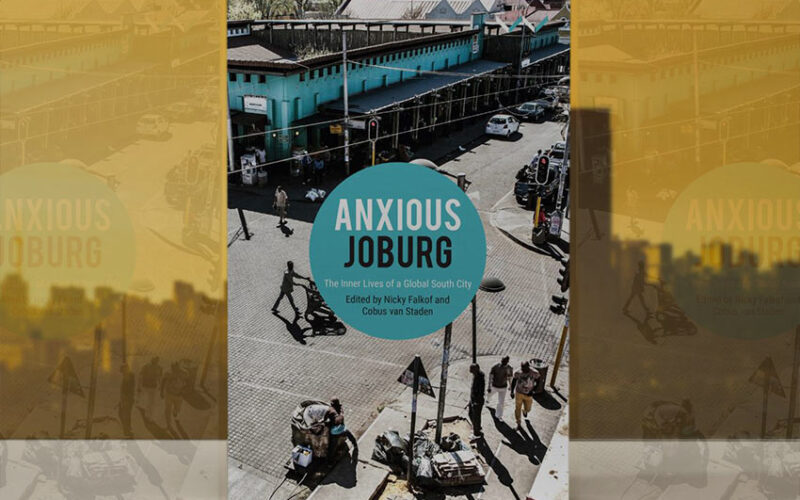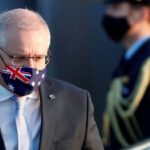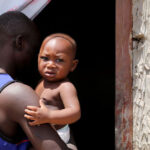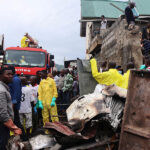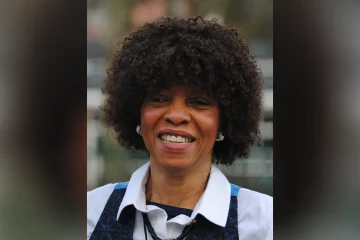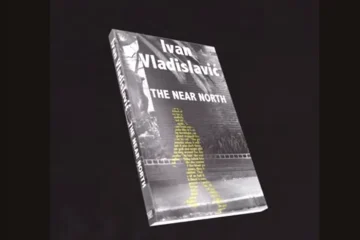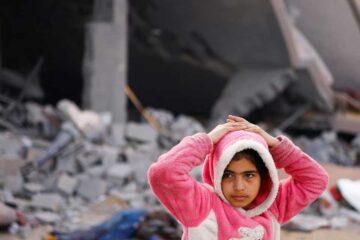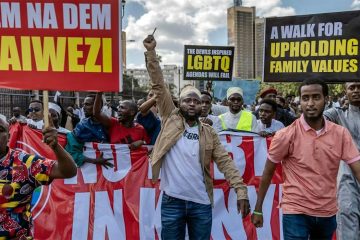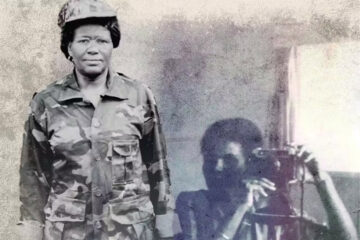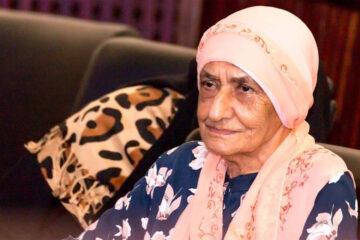B CAMMINGA
MAROONED: Seeking asylum as a transgender person in Johannesburg
“When I come here for me, my perspective about South Africa is that it is a gay-friendly country … when I … get in the plane I was crying because I felt relieved. I say, ‘Oh my God!’ and I cried. There was a … woman on the plane who said, ‘Why are you crying?’ I know why I am crying. I know because I was feeling, when we land to Johannesburg I will say, ‘Thank you, God, now I am safe!’”
South Africa is the only country on the African continent that recognises sexual orientation and gender – including gender identity and expression – as human rights, enshrined within the country’s Constitution (1996).
Although other countries across the continent have increasingly begun to decriminalise homosexuality, most recently Angola and Botswana, South Africa is the only country that offers particular rights and protections to transgender people, including access to affirming healthcare. In recent years, in part owing to these far-reaching constitutional protections, the country has seen the emergence of a relatively new class of refugee – those who identify as transgender or “gender refugees”. In essence, these are people who can make claims to refugee status, fleeing their countries of origin based on the persecution of their gender identity.
As the opening comment from the East African refugee Alex suggests, for transgender people who journey to the country from other parts of the continent, South Africa is synonymous with safety, possibility and protection. Indeed, so wide is this reputation for constitutional protection that some gender refugees have even been told by assailants in countries of origin, “We will kill you … go to South Africa.” Two primary cities or sites structure this notion of safety: Cape Town and Johannesburg. The former has a prominent place within the global queer imaginary as the African continent’s not uncontroversial “gay capital”, while the latter maintains an identity as a “world-class African city” and economic hub. As a country of asylum, South Africa does not practise encampment but rather a system of local integration, meaning that asylum seekers experience freedom of movement. It is perhaps unsurprising that the majority of those entering the country who identify as transgender, like Alex, have in the past chosen not to remain in Johannesburg. Rather they have chosen to journey to the place “for visitors who are out and proud, and looking for a city that embraces this freedom” – Cape Town.
In recent years, owing to changes in asylum policy in South Africa, moving to Cape Town has become difficult if not impossible for transgender asylum seekers. These policy shifts have left many with little option but to remain in Johannesburg. Drawing on my ongoing research work begun in 2012 with gender refugees living in South Africa, this chapter forms a companion piece to a chapter published in Beyond the Mountain: Queer Life in ‘Africa’s Gay Capital’. In “Being and Longing in Cape Town” I focused on Cape Town and the dire impact of the closure of the city’s Refugee Reception Office (RRO). The current chapter situates itself in Johannesburg. In it I unpack what it may mean for transgender people, who can no longer move directly to Cape Town owing to the RRO closure, to have to stay in Johannesburg. This is a city which, given the density of migrants from all over the continent and beyond, the lack of trans-specific support structures and high rates of criminality, is often punitively experienced by those considered socio-economically weak or less able to defend themselves. Being “marooned” in Johannesburg can leave gender refugees deeply fearful, anxious and apprehensive.
Work in the area of emotional geography has highlighted how emotions are not “entirely interiorised mental states” but are also the outcome of socio-spatial relations between people and environments. Alongside this, more recent work in transgender studies has shown that geographies can and do have a critical impact on how transgender people are able to actualise themselves and how they experience or can express their gender. In this chapter, I consider the socio-spatial relations that affect migrants in Johannesburg, in particular the impact of the generalised anxiety over economic migrants and what this has meant for transgender people who seek asylum in South Africa. I argue that the system of asylum, as it is currently managed in South Africa, induces particular kinds of anxiety for transgender asylum seekers directly linked to their status as both transgender people and migrants marooned in a city that is profoundly unwelcoming and unable to support them.
Seeking asylum in Jozi
In Pretoria, Joburg’s neighbouring city, at the corner of Es’kia Mphahlele and Johannes Ramokhoase streets, lies the Desmond Tutu Refugee Reception Centre. Formerly Marabastad, the Centre was relaunched in 2017 by President Jacob Zuma with updated software, a digitised ticketed queuing system and a refurbished interior. It was renamed “Desmond Tutu” with a picture of the archbishop erected over its entrance to invoke, according to Zuma, the spirit of someone “who fought tirelessly for justice, equality, human rights and freedom” and to inspire those within to provide exemplary service. Isobel, a trans woman from East Africa, fled her country of origin after a near-fatal attack and arrived in Johannesburg in 2018. The Desmond Tutu Refugee Reception Centre has a website indicating which nationals may be seen on which days: Monday–Tuesday: “SADC, North Africa and Asians [sic]”; Wednesday: “Ethiopia, Burundi, Rwanda, Uganda, Eritrea and Ghana”; Thursday: “Somalia, Camerron [sic], Senegal, Eritrea and Ethiopia”; and Friday: “English only”. The country that Isobel comes from is not on the list. The first time she went to the Centre, she was told that she had arrived on the wrong day and that she would need to return on a Tuesday with “other North Africans”. This is not her region, let alone her country of origin. Since her arrival, she has returned to the Centre on several occasions to begin the process of gaining access to an asylum-seeker permit. Each time, after a day of queuing with other migrants, many of them hostile, she has not made it through the doors to even begin the process of applying for asylum.
As with many asylum seekers who have had to return to the Centre on several occasions because they could not make it through the front doors, Isobel’s visa, allowing her to be legally present in South Africa, is about to expire. She is being supported by a transgender organisation that has stepped in to assist her but does not usually do refugee work. Refugee organisations, who are already working under challenging conditions in South Africa, struggle to assist transgender people seeking asylum because of the dual precarity they face. For transgender people there is a general lack of support in the city.
While Cape Town has the Pride Shelter, Johannesburg does not have any dedicated LGBTQIA+ equivalent. The lack of general transgender support in the city means that transgender people are vulnerable to becoming homeless. Most shelters in the city are either single-sex or run by organisations that are religious and therefore not inclusive. According to Joshua Sehoole from Iranti, a Johannesburg-based media organisation that works with and champions the rights of lesbian, transgender (including gender-nonconforming) and intersex persons in Africa: “There is also a lack of understanding, support and information, which affects the lesbian, gay, bisexual, transgender and intersex community in general, but particularly transgender people. I can’t say I know of any shelters that are inclusive in terms of policy or their practice. In our experience, trans people are only granted access when they can hide their gender identity.”
Without shelter or community support, transgender asylum seekers are forced to stay with country-of-origin communities. Individual prejudices held by these communities are often not altered by progressive legislation and protections. A comparative analysis of the experiences of LGBTQIA+ refugees made by the Organisation for Refuge, Asylum and Migration notes that though South Africa has some of the most progressive legislation in the world addressing the rights of LGBTQIA+ people, there continues to be “a stark disparity between official legal rights and their practical enjoyment”.
Shelter is not the only service that transgender asylum seekers require. Unlike other asylum seekers and migrants, or even other LGBTQIA+ people, transgender people have specific healthcare needs. In Cape Town, in part because of the presence of the Transgender Clinic at Groote Schuur Hospital, transgender constituents and organisations, there is some focus, however insufficient, on transgender-related healthcare and access. Nadzeya Husakouskaya’s study of transgender South Africans who had migrated to the city from elsewhere in the country notes that the focus on trans-related healthcare is less salient in Johannesburg. Health concerns of LGBTQIA+ organisations more generally have tended to focus on HIV/Aids and gender-based violence, with less attention given to other health concerns including trans-related healthcare and mental health.
Public hospitals in Gauteng which offer trans-related services include Steve Biko Academic Hospital in Pretoria, the Chris Hani Baragwanath Hospital and Charlotte Maxeke Johannesburg. Of these three, only Steve Biko offers comprehensive care while the other two offer some services but not others. Alongside these three hospitals there continues to be only one official non-governmental transgender organisation, Transgender and Intersex Africa (TIA). Based in Soshanguve, Pretoria, TIA is predominantly focused on the needs of Black transgender and intersex people in townships and rural areas. They certainly have assisted and supported transgender asylum seekers, and continue to do so, but asylum is not a focal point of their advocacy or work. Husakouskaya highlights that the lack of access to healthcare and community support coupled with the perceived high cost of living and unemployment makes life in Johannesburg especially difficult for transgender South Africans who migrate to the city.
Along with this, given widespread discrimination experienced on public transport, in medical settings, with local communities and in the job market, many consider returning home. Home here means other areas of South Africa. For transgender asylum seekers like Isobel, returning home is simply not an option. The question becomes: why, as a transgender asylum seeker, is Isobel applying in Johannesburg at all?
This is a lightly edited excerpt from “Marooned: Seeking Asylum as a Transgender Person in Johannesburg” by B Camminga in Anxious Joburg: The Inner Lives of a Global South City (Wits University Press, 2020), edited by Cobus van Staden and Nicky Falkof.

